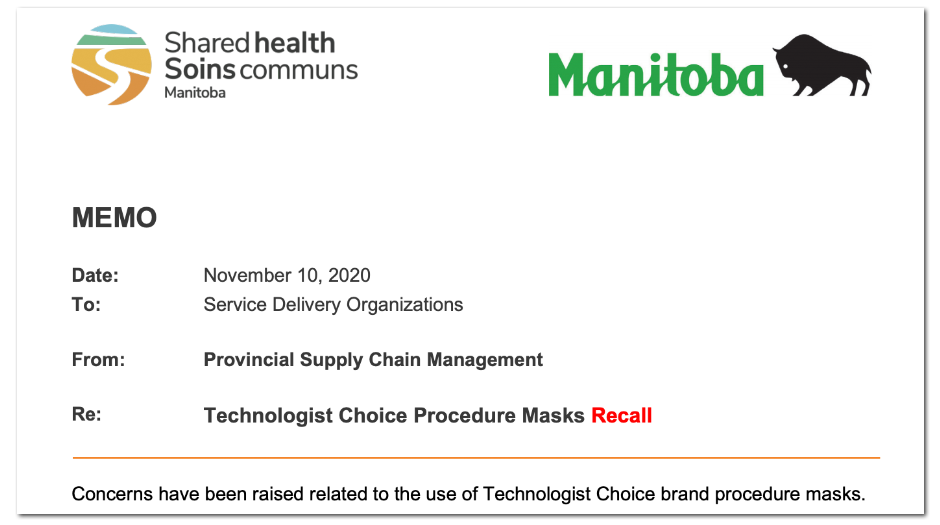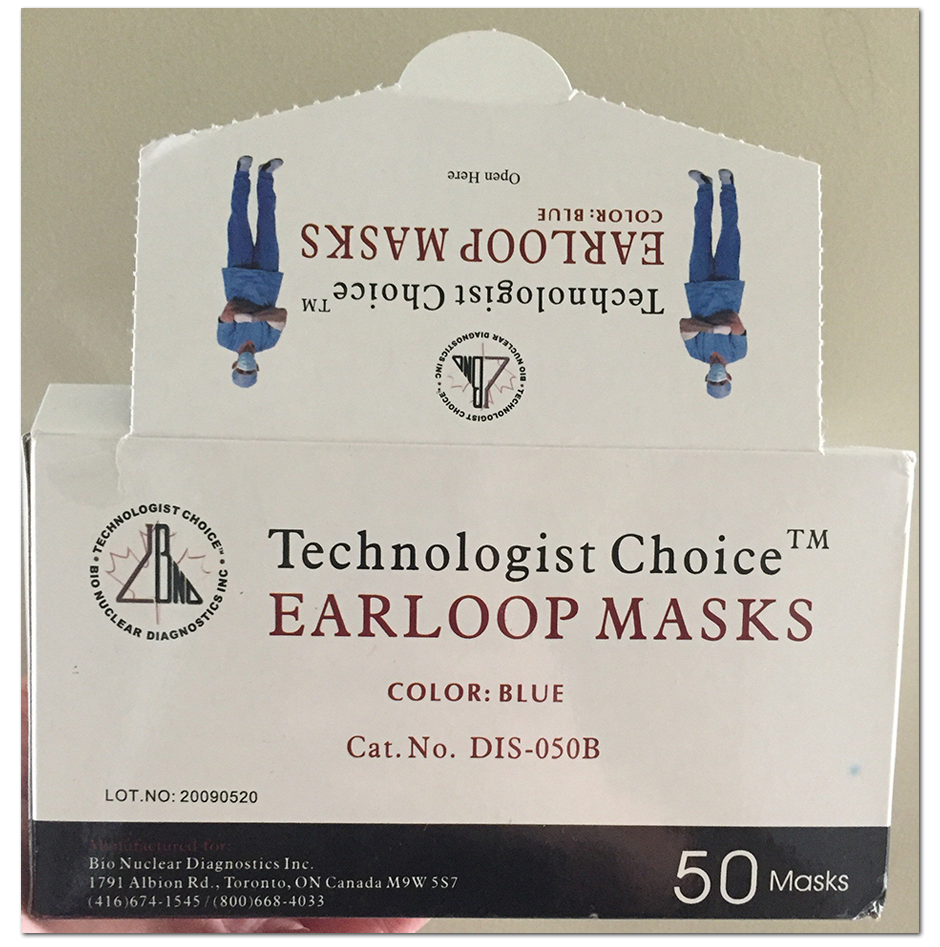
Manitoba Gave Home Care Workers Expired Masks. Now They Worry the People They Care For Could Get Sick.
Manitoba home care workers say they're still waiting for Brian Pallister's government to deliver functioning N95 masks
After the Government of Manitoba sent public workers thousands of expired masks, home care workers are worried about the people they care for and wondering when they’re going to receive the N95 masks they were promised.
Earlier this month, the province recalled thousands of “Technologist Choice” procedural masks given to workers in home care, health care, child care, schools and other public sector workplaces. Workers reported experiencing strong odours, nausea, skin irritation and coughing fits after using the masks.
The masks were over ten years old.
Purchased for the H1N1 protection in 2009/10, Brian Pallister’s government approved them for distribution in spring 2020 following an Infection Control & Prevention / Occupational and Environmental Health and Safety review.

Shared Health Manitoba recall notice
Shannon McAteer, CUPE’s healthcare coordinator, said Winnipeg’s Regional Health Authority only began to move on the N95s after CUPE filed 55 grievances on behalf of public health care workers.
She said the slowness and inconsistency is unacceptable this far into a pandemic.
“Quite frankly, I don’t understand why they’re not providing them when they have COVID positive patients. We’re trying to stop the spread of this virus and by not providing appropriate PPE, that’s not what the employer is doing,” McAteer told PressProgress.
“The N95s, again, is the perfect example of ‘Why do we have to fight for this when we’re talking about a pandemic?” Honestly it makes no sense.”
In April, the province ordered five million N95 masks without requesting samples or fit requirements, according to the manufacturer. The company is now suing the province for $6 million plus interest.
Home care enables many people, including the elderly, disabled or individuals with underlying medical conditions, to stay out of long-term care homes. Workers ensure clients are eating regularly, taking their medication and also assist with light cleaning and personal hygiene.
Under Manitoba’s home care model, the WRHA assigns home care workers to clients or gives funding directly to clients to hire their own home care through the Self and Family Management program. The clients can then hire staff directly, or recruit staff through an agency — which may or may not be unionized.
One home care worker who was hired directly by a family client told PressProgress that the WRHA wasn’t providing enough enforcement or oversight.
The worker said their family employer did not notify them that a coworker was being monitored and tested following a close contact, despite knowing for days.
“We’re all making sacrifices to keep him safe and his family won’t do the same for him, and won’t do the same for us, by extension,” the worker said.
“With his disability, if he were to catch COVID, he would be a hospital case for sure, like he has trouble breathing normally.”
Workers later found out their masks were expired through social media. While masks were replaced a week after being recalled, the workers said they need more effective N95 masks. They’ve had trouble asking for them as they don’t have a union or any direct contact with WRHA.

Expired masks distributed to home care workers
Advocates note Manitoba’s home care delivery model creates inconsistent employment standards.
Doug Lockhart, Project Development and Training Coordinator from Winnipeg’s Independent Resource Living Centre says people with disabilities have more autonomy and control over their care when they can hire their own staff.
“In our agency, they are involved in every aspect that they want to be and we strongly encourage them to be involved in all aspects of the hiring, training, orientation, recruitment, evaluation, etcetera,” Lockhart told PressProgress.
Using an agency can provide another layer of “communication and coordination” between the client, the WRHA, and the workers, Lockhart said. To his knowledge, the expired masks were replaced in three days.
“We update all of our staff weekly, I send those emails myself, so they’re updated with those COVID procedures and the expectations of them,” he said.
McAteer said she agrees more oversight is needed for workers and “the most vulnerable population we have living in the community.”
“The WRHA and the government, there needs to be some kind of oversight and some kind of reporting structures and some transparency,” McAteer said. “I think that’s what needs to happen before we get into a situation like we are in long term care right now – we need to get ahead of it.”
The WRHA did not return PressProgress‘ requests for comment.
Our journalism is powered by readers like you.
We’re an award-winning non-profit news organization that covers topics like social and economic inequality, big business and labour, and right-wing extremism.
Help us build so we can bring to light stories that don’t get the attention they deserve from Canada’s big corporate media outlets.
Donate



